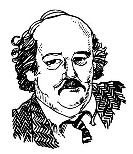(Syndicated to Kansas newspapers March 11, 2013)
This school finance business seems pretty remote to most of us…a bunch of complicated formulas, weightings and an in-the-constitution requirement to make “suitable provision for the finance of the educational interests of the state.”
But in the political world of the Kansas Statehouse, the school finance battle over whether the state is spending enough money on K-12 public education comes down to two numbers: $4,492 and whatever your property tax bill is before you vote in the August primary election in 2014.
The $4,492? That’s the number that the Kansas Supreme Court a few years ago decided that the state ought to pay to school districts as the “base state aid per pupil” (which everyone in the Statehouse calls BSAPP). That’s the number that was arrived at the last time the Kansas Supreme Court weighed in on a school finance lawsuit.
Now, that $4,492 is just the starting point; districts get more than that BSAPP number for pupils who need extra help—“at-risk” or who don’t speak English as their native language and such. That’s the complicated stuff.
But $4,492 is the golden number.
There are ways to get to that number, like renaming some of that local property tax that we all pay for public schools as state aid. There’s a bill to do that, and it doesn’t sound quite right, just claiming that the state is responsible for—and gets credit toward that $4,492 for—that locally levied property taxes. But, if the Legislature can do that, and put it into law, the court might have to say that qualifies…or it might say that is just ridiculous.
But that’s the target. If the Legislature, with the governor’s signature, can somehow reach that number, the state might be able to claim that it has made “suitable provision for the finance of the educational interests of the state.”
That would take the state off the hook, and then local school board members will, while blaming the Legislature and governor, likely have to increase local property taxes to make the schools work…or maybe just cancel high school football and basketball while they pack to leave the districts.
And, that’s when the second number becomes the key to the 2014 gubernatorial and likely dozens of state representative elections.
If your property tax bill goes up before the 2014 elections—and remember that property taxes are generally the most hated taxes by most Kansans—that will likely decide a lot of those elections.
Are you going to vote for anyone who has left fingerprints on a bigger property tax bill? Probably not.
That’s where timing becomes essential. If the state manages to find a way to meet that $4,492 number without increasing your property taxes—before the 2014 elections—voters may not have a reason to switch out the governor and the Kansas House of Representatives.
The day after the election? Well, that’s the day after the election, isn’t it…

